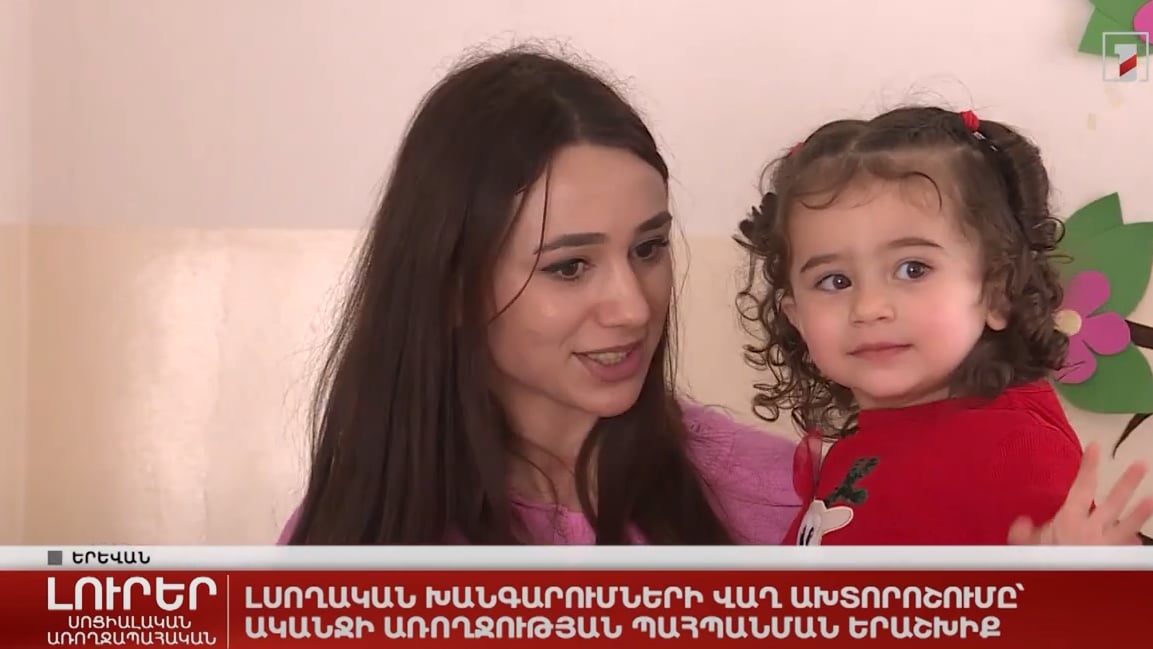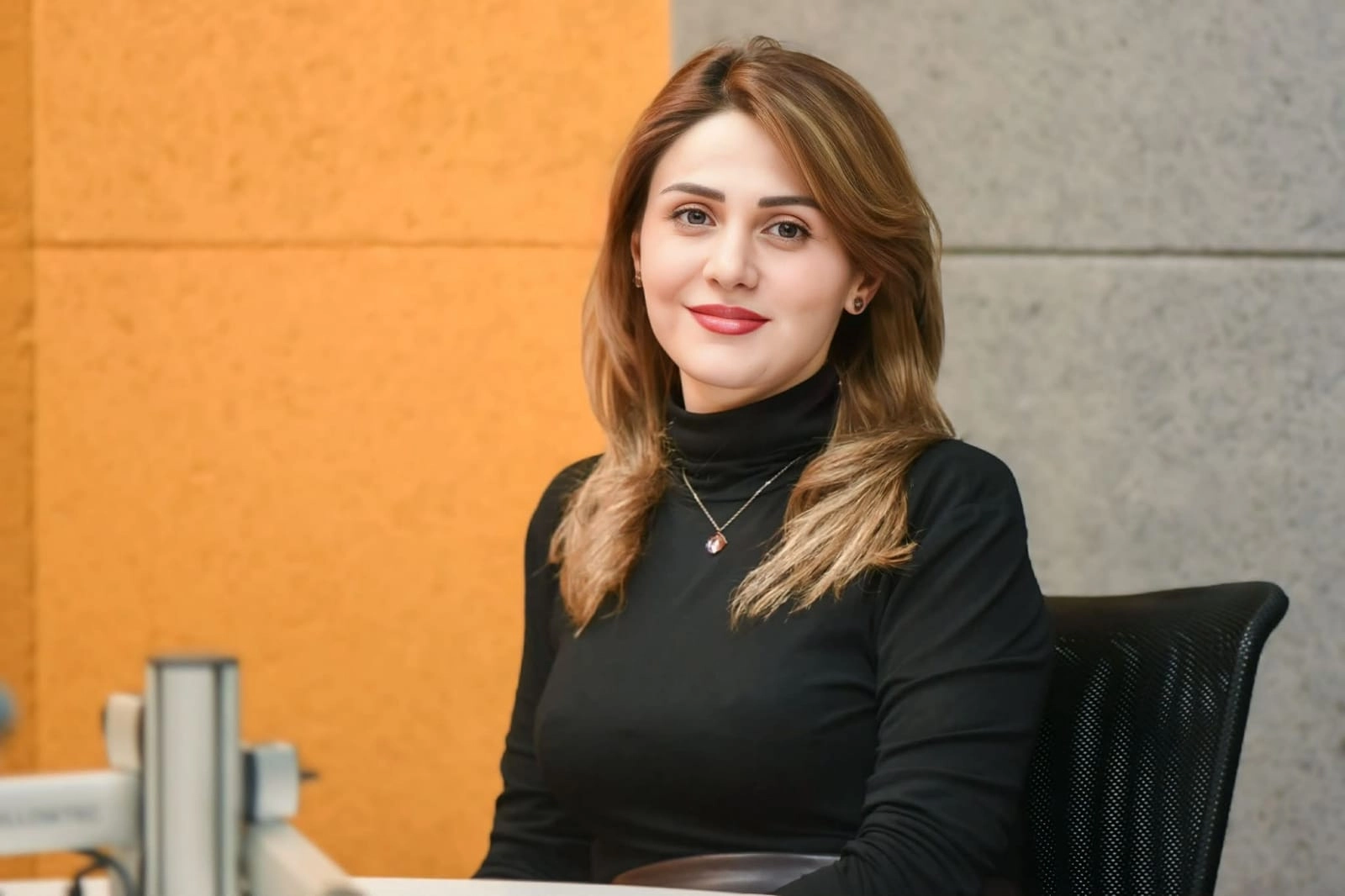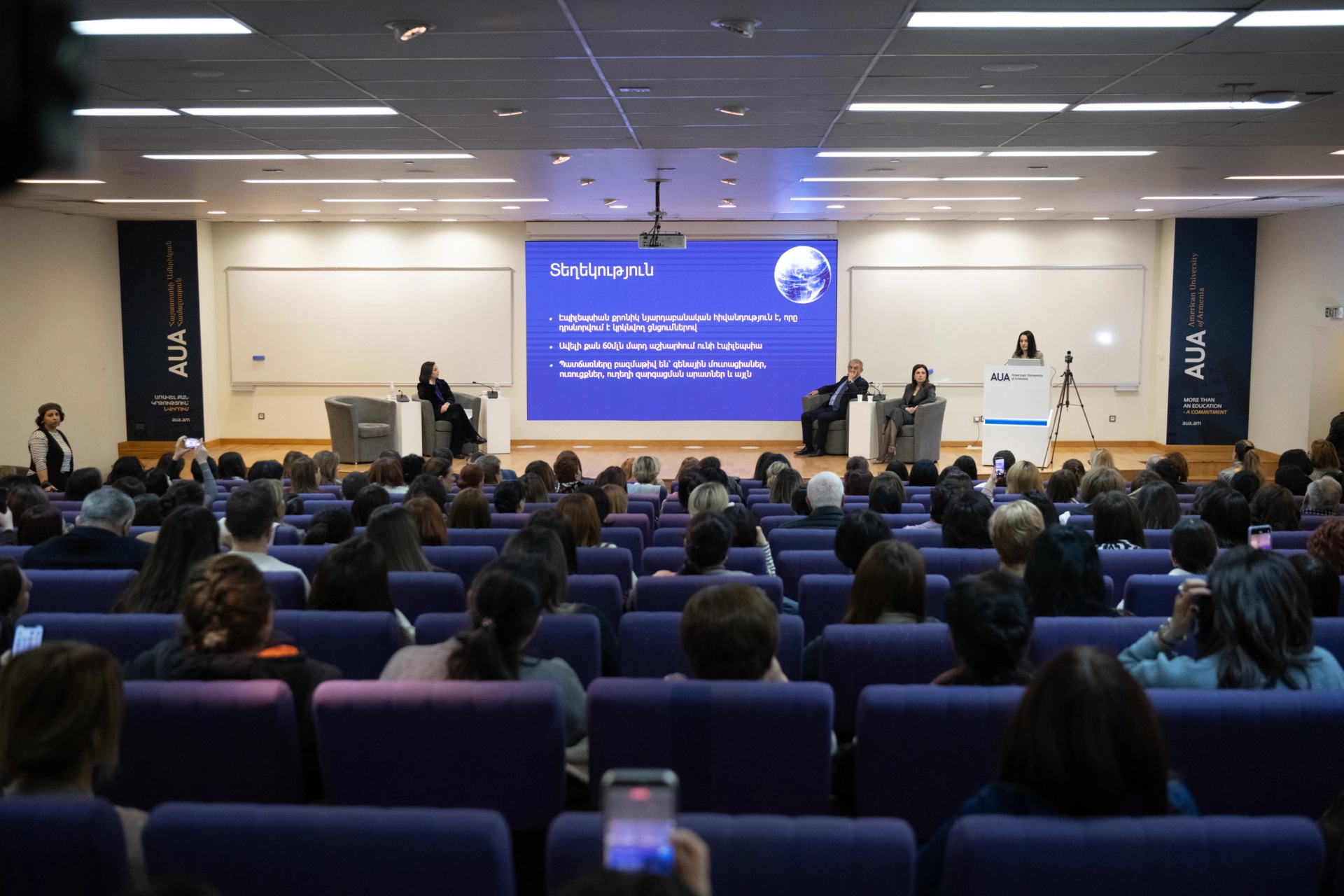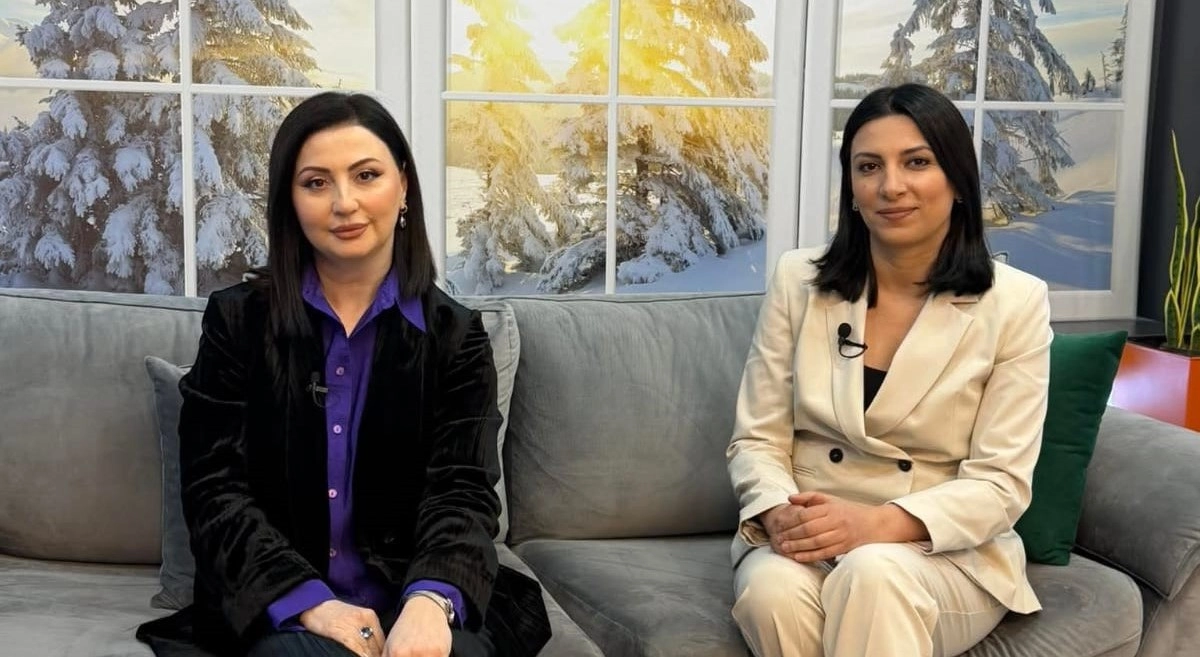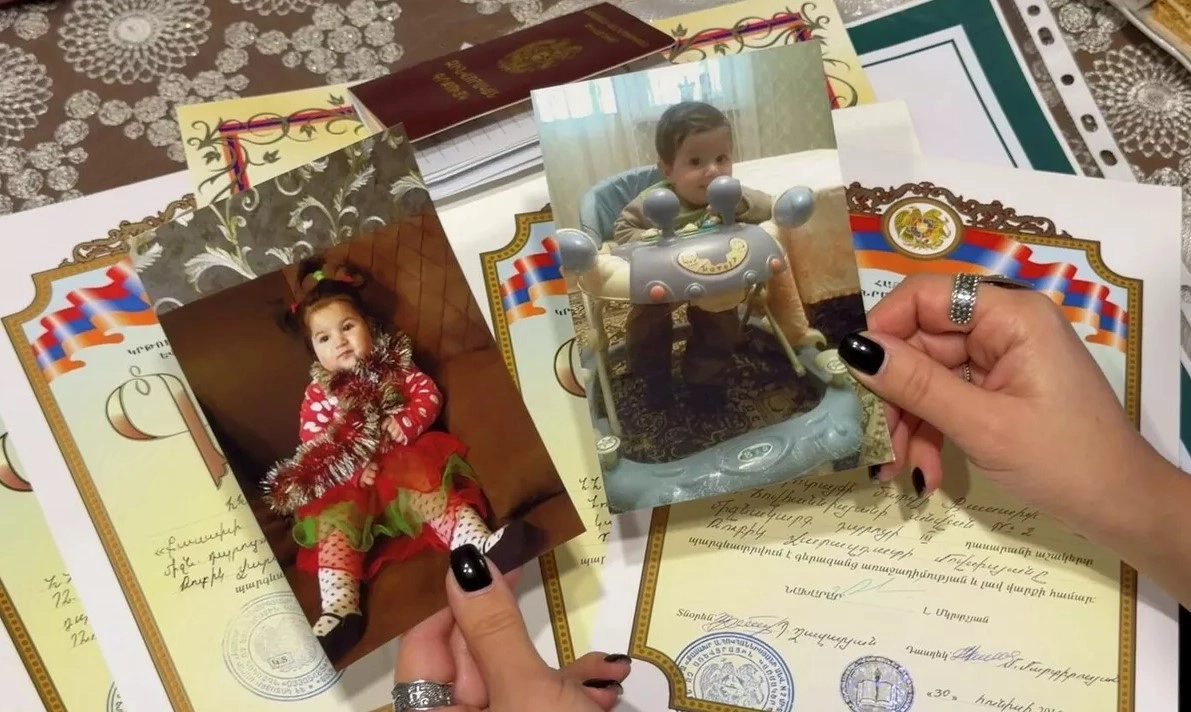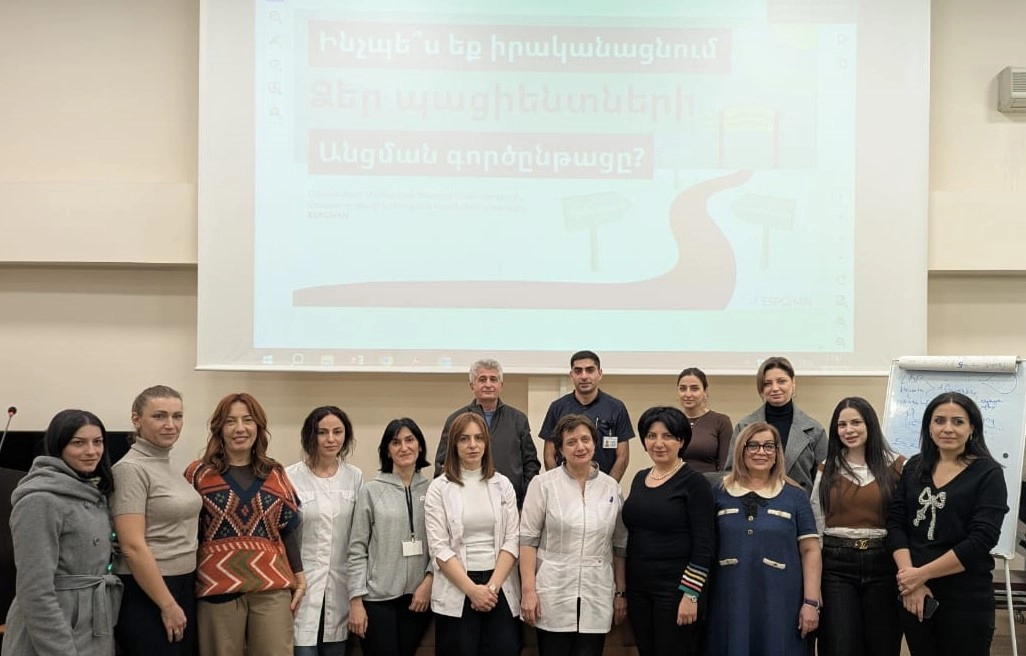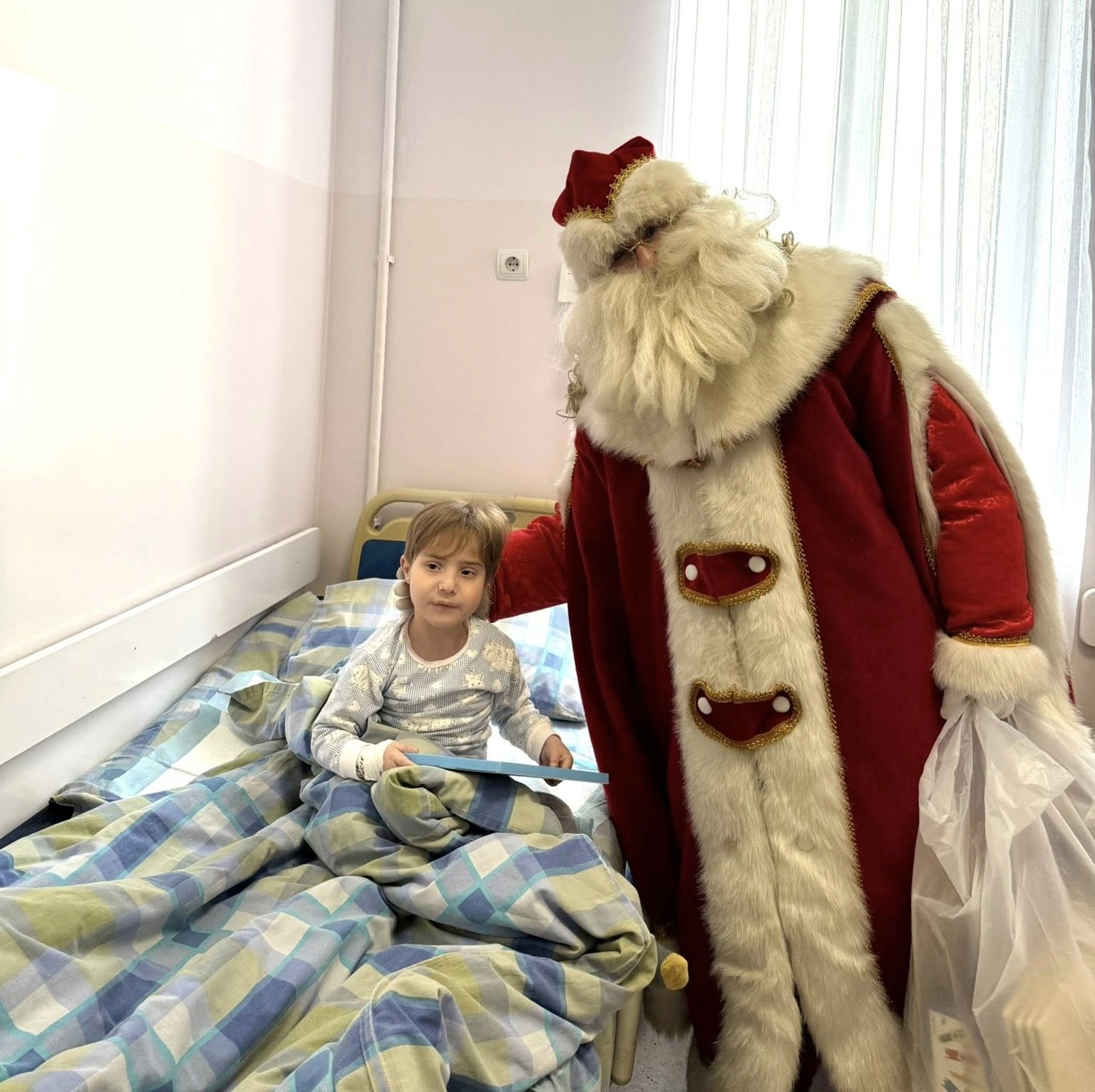On the eve of the World Hearing Day, the news team of the Public TV Company visited the Speech Development Center at the "Arabkir" Medical Center, which caters to 40 children with hearing impairment attending classes 4 times a week.
Thanks to the dedicated work of the audiology service team, including doctors, audiometrists, audio therapists, art therapists, psychologists, and of course, parents, the children learn to speak and successfully integrate into public schools.
- What is your name?
- Narek.
- How old are you?
- Seven.
Narek is currently in the first grade and has profound (Level 4) congenital hearing loss. He visited the Speech Development Center at the “Arabkir” Medical Center to monitor his progress.
Suzanna Harutyunyan, Narek’s mother, shares: “We first heard Narek speak his first words, “mama”, “papa”, “ami” (red - “karmir” in Armenia), and “atach” (green - “kanach” in Armenian), when he was 4.5 years old. About a year later, following Roza’s advice, I began keeping a diary to track his progress, writing down the words in order. When I revisited the diary a year later on the same date, I was surprised to find out that Narek had learned 270 new words.
There are many guests gathered at the Speech Development Center on World Hearing Day, including former students who came to express their gratitude in person.
Among them is 7-year-old Mariam, reciting a poem. She has already decided to become a doctor - a dentist. At first glance, there are no signs that she has ever experienced hearing or speech difficulties.
Audiologist Marine Grigoryan provides insight, “Mariam was diagnosed a bit later, but with early intervention and the use of prosthetics, significant progress has been made in improving the quality of her speech.”
Early diagnosis and timely interventions play a crucial role in overcoming challenges and facilitating social integration.
Marine Grigoryan further emphasizes: “Mariam’s case exemplifies the importance of early intervention, from identification and diagnosis to the provision of prosthetics and specialized classes.”
Thanks to these efforts, Mariam now exhibits speech development comparable to her peers, highlighting the positive impact of early detection and appropriate interventions on a child's development.
Dr. Nelli Mosesova emphasizes: “According to WHO data, approximately 5% of the global population experiences various forms of hearing impairment, a condition that is particularly prevalent among children. In fact, it ranks as one of the most common pathologies even among newborns, affecting roughly one in a thousand individuals on average.”
While hereditary factors account for 30-50% of cases of hearing loss, it's important to note that children with hearing impairments can also be born to parents without any prior history of such conditions.
Dr. Nelly Mosesova explains, “There are various causes of hearing loss, with many cases attributed to conditions like acute respiratory infections or other illnesses, often resulting in temporary impairment.
The newborn hearing screening program was initiated in Armenia in 2008 and has been fully implemented nationwide since 2018. With advancements in modern medicine, there are many opportunities available to enhance children's hearing. To preserve the vital sense of hearing that connects us to the world, it is crucial to prioritize our health.

 English
English
 Հայերեն
Հայերեն Русский
Русский